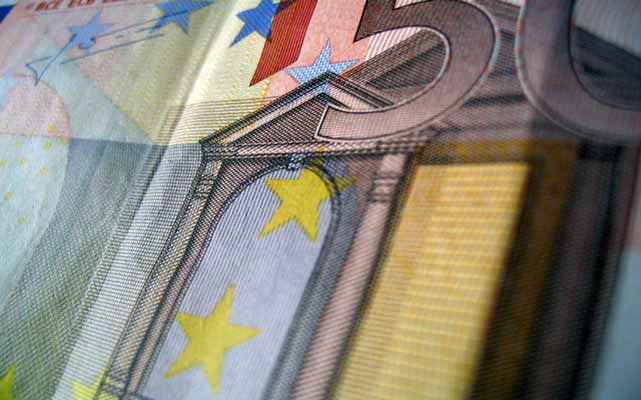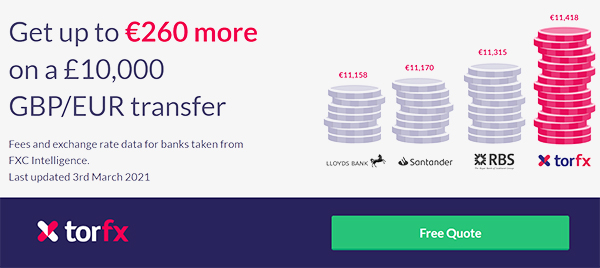Pound-to-Euro Rate Closer to €1.15 as Eurozone Confidence Slumps
- Written by
David Woodsmith

The Pound to Euro exchange rate (GBP/EUR) began the week on the front foot, climbing as sentiment in the Eurozone took an unexpected hit.
At the time of writing, GBP/EUR was trading around €1.1486, up approximately 0.3% from Monday’s opening levels.
The Euro (EUR) came under pressure on Monday after a sharp decline in investor confidence across the Eurozone.
Sentix’s latest index fell into negative territory, dropping from 6.2 to –3.7 in August, far below the modest dip to 4.5 that markets had anticipated.
The survey pointed to falling confidence in both current economic conditions and future expectations. Analysts linked the souring mood to disappointment over the recent EU–US trade agreement, which failed to deliver the clarity and relief markets had hoped for.
Sentix Managing Director Manfred Huebner described the deal as a ‘real mood killer,’ underlining the scale of investor frustration with the agreement’s vague terms and unresolved tariff issues.
The Pound (GBP) advanced against the Euro, but gains elsewhere were limited as markets turned cautious ahead of the Bank of England’s (BoE) upcoming interest rate decision.

With a 25 basis point cut widely expected this Thursday, most GBP investors were hesitant to make bold moves. The real driver of Sterling’s direction will likely be the BoE’s tone and outlook.
If Governor Andrew Bailey hints that further cuts are on the table later this year, Sterling may lose steam. However, a more measured or hawkish message could help limit downside risk for the Pound.
Looking ahead, before the BoE decision lands, the Pound to Euro exchange rate (GBP/EUR) may respond to key PMI data from both sides of the Channel.
The UK’s final services PMI for July is expected to confirm a slowdown in activity, a potential drag on the Pound if investors interpret it as a warning sign for the broader economy.
Meanwhile, the Euro could find support if the Eurozone’s own PMI shows stronger-than-expected growth in the service sector.
That said, the greater focus may fall on the region’s producer price index. If factory input costs rose at the end of Q2, it could fuel speculation that the European Central Bank (ECB) will hold off on further easing, potentially offering the Euro some support.

STORY LINK Pound-to-Euro Rate Closer to €1.15 as Eurozone Confidence Slumps

The Pound to Euro exchange rate (GBP/EUR) began the week on the front foot, climbing as sentiment in the Eurozone took an unexpected hit.
At the time of writing, GBP/EUR was trading around €1.1486, up approximately 0.3% from Monday’s opening levels.
The Euro (EUR) came under pressure on Monday after a sharp decline in investor confidence across the Eurozone.
Sentix’s latest index fell into negative territory, dropping from 6.2 to –3.7 in August, far below the modest dip to 4.5 that markets had anticipated.
The survey pointed to falling confidence in both current economic conditions and future expectations. Analysts linked the souring mood to disappointment over the recent EU–US trade agreement, which failed to deliver the clarity and relief markets had hoped for.
Sentix Managing Director Manfred Huebner described the deal as a ‘real mood killer,’ underlining the scale of investor frustration with the agreement’s vague terms and unresolved tariff issues.
The Pound (GBP) advanced against the Euro, but gains elsewhere were limited as markets turned cautious ahead of the Bank of England’s (BoE) upcoming interest rate decision.

With a 25 basis point cut widely expected this Thursday, most GBP investors were hesitant to make bold moves. The real driver of Sterling’s direction will likely be the BoE’s tone and outlook.
If Governor Andrew Bailey hints that further cuts are on the table later this year, Sterling may lose steam. However, a more measured or hawkish message could help limit downside risk for the Pound.
Looking ahead, before the BoE decision lands, the Pound to Euro exchange rate (GBP/EUR) may respond to key PMI data from both sides of the Channel.
The UK’s final services PMI for July is expected to confirm a slowdown in activity, a potential drag on the Pound if investors interpret it as a warning sign for the broader economy.
Meanwhile, the Euro could find support if the Eurozone’s own PMI shows stronger-than-expected growth in the service sector.
That said, the greater focus may fall on the region’s producer price index. If factory input costs rose at the end of Q2, it could fuel speculation that the European Central Bank (ECB) will hold off on further easing, potentially offering the Euro some support.

International Money Transfer? Ask our resident FX expert a money transfer question or try John's new, free, no-obligation personal service! ,where he helps every step of the way, ensuring you get the best exchange rates on your currency requirements.
TAGS: Pound Euro Forecasts
Comments are currrently disabled
Related Stories:
- Pound to Euro Rate Today: GBP Listless as Markets Await BoE Verdict - August 6, 2025
- Pound-to-Euro Forecast: "Negativity is Overdone" says Bank of America - August 6, 2025
- British Pound to Euro Forecast: Sell GBP/EUR Rallies, But Not Yet - August 5, 2025
- Pound-to-Euro Firms Following Final Services PMIs - August 5, 2025
- Pound-to-Euro Rate Closer to €1.15 as Eurozone Confidence Slumps - August 4, 2025
- Pound to Euro Forecast: 1.15 Next for Sterling Ahead of BoE Risk - August 4, 2025
- Pound-to-Euro Week Ahead Forecast: GBP Retreat to 1.1365, says Bank - August 3, 2025
- Pound to Euro Forecast: GBP Underperforms on UK Tax Hike Fears - August 1, 2025
- Pound-to-Euro Rate Sinks as Dollar Surges on US Jobs Shock - August 1, 2025
Latest News:
- Pound-to-Euro Forecast: "Negativity is Overdone" says Bank of America - August 6, 2025
- Pound to Euro Rate Today: GBP Listless as Markets Await BoE Verdict - August 6, 2025
- Euro to Dollar Forecast: EUR/USD Buyers to Return "in 1.1500/1520 Area" - August 6, 2025
- Pound to Dollar Price Forecast: "Push Higher to Low 1.34 Area" - August 6, 2025
- British Pound to Euro Forecast: Sell GBP/EUR Rallies, But Not Yet - August 5, 2025
- Pound-to-Euro Firms Following Final Services PMIs - August 5, 2025
- Pound to Dollar Price Forecast: GBP Consolidates "Hefty Gains" - August 5, 2025
- Pound to Dollar Forecast: GBP Eyes 1.33 as Markets Bet on BoE Rate Cut - August 5, 2025
- Euro-to-Dollar Price Forecast: "Buyers in the 1.1500/1.520 Area" - August 4, 2025
- Pound Sterling to Dollar Forecast: GBP Rebounds as FED Rate Bets Intensify - August 4, 2025








